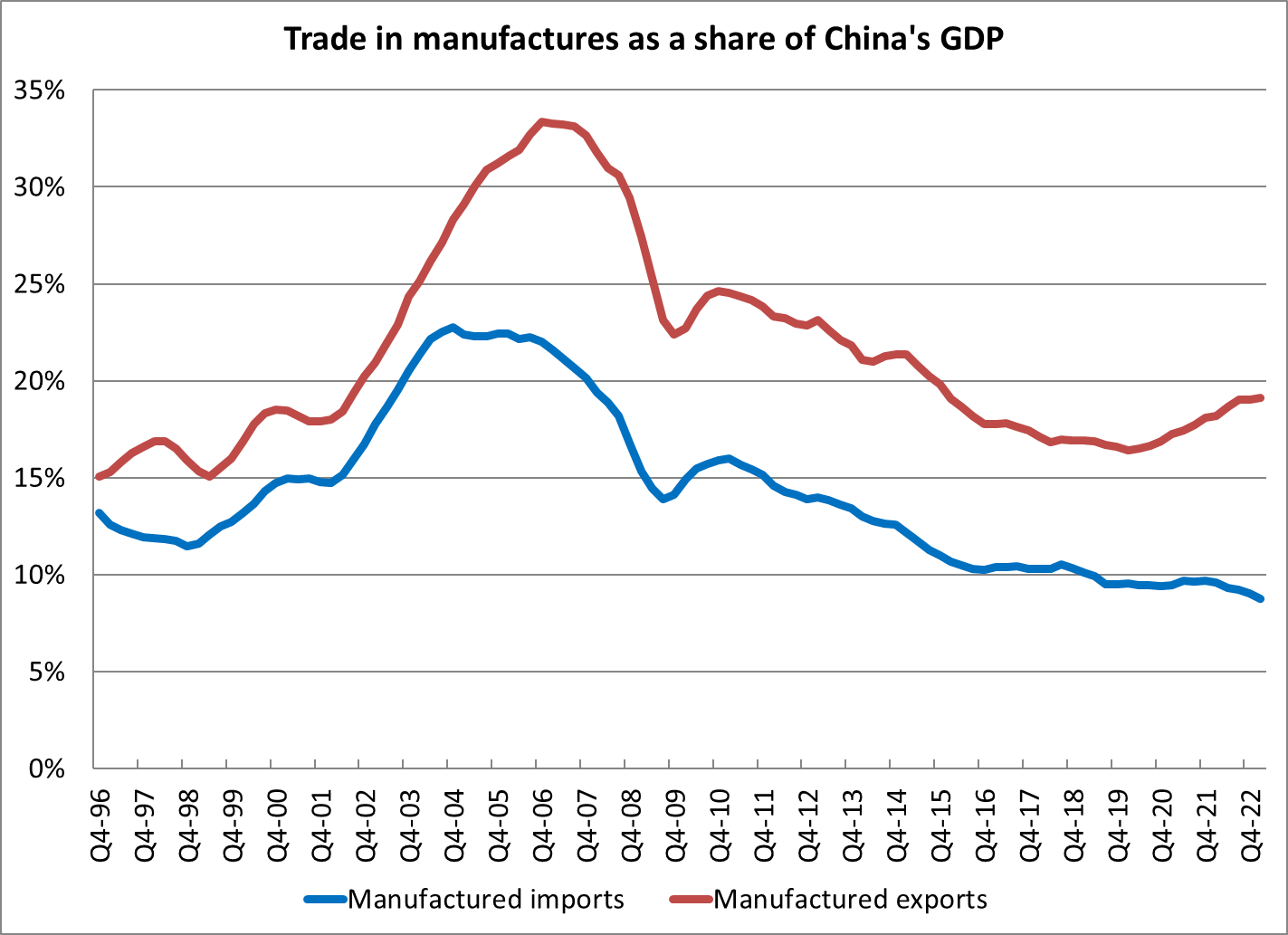TL(PM) DIGEST: Russia attempts a poor Top Gun remake over Syria
Plus untrue claims that America's industrial policy hurts China's economy, an exodus of black residents from Baltimore, and a bipartisan congressional push for a Supreme Court code of ethics

1. Russia risking escalation in Syria
What happened? U.S. military officials say that Russian jets and drones in Syria are harassing American forces with increasing regularity—including some 60 violations of existing military deconfliction agreements between the United States and Russia since March 1 alone, as well as overflights of the small U.S. garrison at al-Tanf near the Jordan-Iraq-Syria border—raising the risk of clashes between the American and Russian militaries in the skies of the Middle East. This behavior “signals a breakdown in professionalism that I have never seen out of the Russian Air Force,” Lt. Gen. Alexus Grynkewich, head of American air forces in the region, told reporters.
Why does it matter? Aggressive and unprofessional actions by Russian pilots aren’t anything new, whether in the Middle East, Europe, or anywhere else—indeed, they’re part of the standard Russian playbook. They may well increase the chances that American and Russian forces might exchange fire over Syria, but the last time Russian-backed forces challenged the U.S. military in the Middle East they were soundly beaten by American airpower with nary a complaint from Moscow.
TLP’s take: There’s no reason for the United States to back down in Syria for fear of escalation with Moscow; if armed clashes do in fact occur, recent experience strongly suggests they’re not likely to escalate further. Diplomatic arrangements to prevent this sort of escalation already exist, moreover, even if Russia fails to use them for their intended purpose—so American military commanders should not hesitate to defend themselves if they believe Russian pilots threaten American planes or troops.
2. No, the United States and other nations aren't knee-capping China's economy
What happened? Amidst increasingly strident warnings from pundits that American and European industrial and export control policies amount to a futile but dangerous attempt to stifle Beijing's inevitable rise to global dominance, Council on Foreign Relations trade scholar Brad Setser points out that China still runs as large a manufacturing trade surplus as it ever has—and that Beijing's manufacturing imports are now lower than at any point since the 1990s. As he notes, “China couldn't run these kinds of surpluses globally without the big US deficit in manufactures.”

Why does it matter? Wittingly or not, anxious commentators in the United States, Europe, and elsewhere have echoed the Chinese Communist Party's claims about American and allied industrial policy moves with increasing frequency in recent weeks. But as Setser observes, the actual data just doesn't support these accusations and if anything prove the opposite—that the United States and Europe continue to trade heavily with China and support its manufacturing industries despite geopolitical tensions and overblown concerns about “de-coupling.”
TLP’s take: A number of voices make exaggerated, unsubstantiated assertions that American and allied economic policies aim to keep China's economy down. On the contrary, it's entirely appropriate for the United States and its allies to invest in their own societies and safeguard their economies to better compete with an increasingly hostile Chinese government.
3. Long-time black residents of Baltimore leave in record numbers
What happened? The Baltimore Banner reports that 57,000 black residents of Baltimore moved out of the city from 2010 to 2020, according to its examination of U.S. Census data.
Why does it matter? Although black residents make up 57 percent of Baltimore’s population, they’re leaving the city at more than double the rate of its white citizens, with the growth in Hispanic, Asian, and multiracial residents making up most of the population loss. As the Banner explains:
Black residents said they are leaving the city because of too few job opportunities and investments in majority-black neighborhoods, while white neighborhoods such as Canton and Harbor Point have enjoyed new apartment buildings, retail centers, offices, and growing populations. Black residents said they have found a better quality of life in neighboring counties, or other states, where they are also finding that they can pay less for the same, if not better, amenities. People also said they left because of persistent crime and better educational opportunities.
TLP’s take: Working- and middle-class families of all racial and ethnic backgrounds can only take so much political dysfunction, underperforming schools, and violent crime before they decide to head out. Baltimore residents need vibrant political competition and better ideas to help build up the city’s latent economic and cultural potential—for all residents in all neighborhoods across the city.
4. Bipartisan bill in Congress would force the Supreme Court to develop an ethics policy
What happened? Following multiple reports of questionable financial activities by Supreme Court justices Clarence Thomas and Neil Gorsuch, a bipartisan group of senators has submitted a new bill requiring the Court to create its own enforceable code of conduct within a year, according to the Wall Street Journal.
Why does it matter? Senators Angus King (I-ME) and Lisa Murkowski (R-AK) introduced the legislation to ensure that Supreme Court justices follow the same ethics guidelines as every other federal judge in America.
“It’s pitiful that we’re having to introduce this bill—it’s pathetic that the Supreme Court hasn’t done this itself,” Mr. King said.
The senator, who caucuses with the Democrats, noted that every other federal judge is subject to a code of conduct. “And by the way, we’re not prescribing what the standard should be,” Mr. King said. “We’re just saying, ‘Do it yourself, and then be sure that there’s someone to keep track of it and that there’s some transparency in reporting.’”
TLP’s take: Sen. King is correct—but the stronger disclosure and recusal standards put forth earlier this year by Sen. Sheldon Whitehouse (D-RI) and Rep. Hank Johnson (D-GA) would be better. However, if this current bipartisan bill can gain more Republican support and pass Congress, it’s worth pursuing to ensure that the Supreme Court at least has minimal standards for ethical conduct.
Just one more thing…
Israeli agricultural researchers dig into the roots of olives, dates, and grapes grown across the ancient and contemporary Mediterranean and Middle East, discovering a previously unknown species of olive tree along the way.






